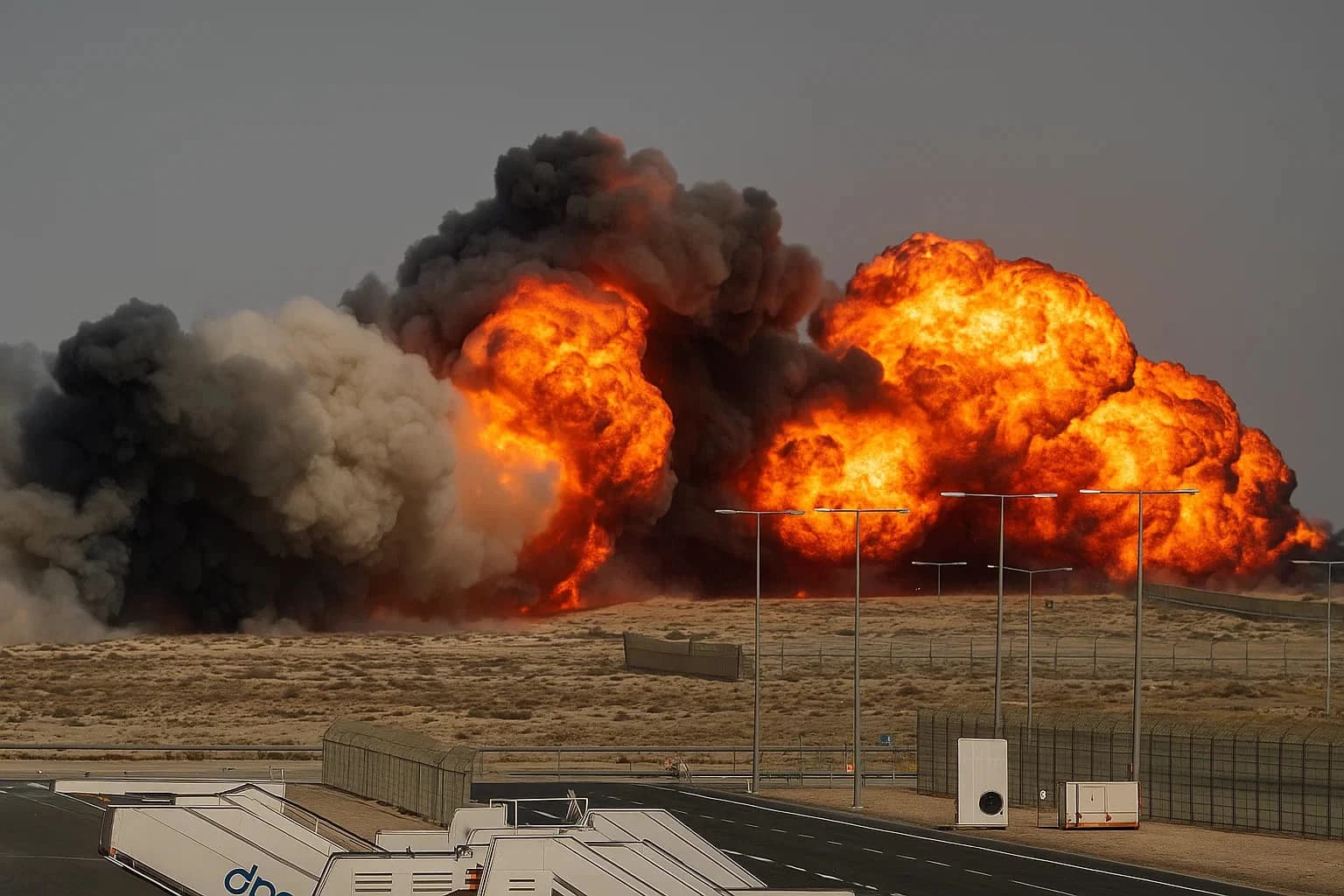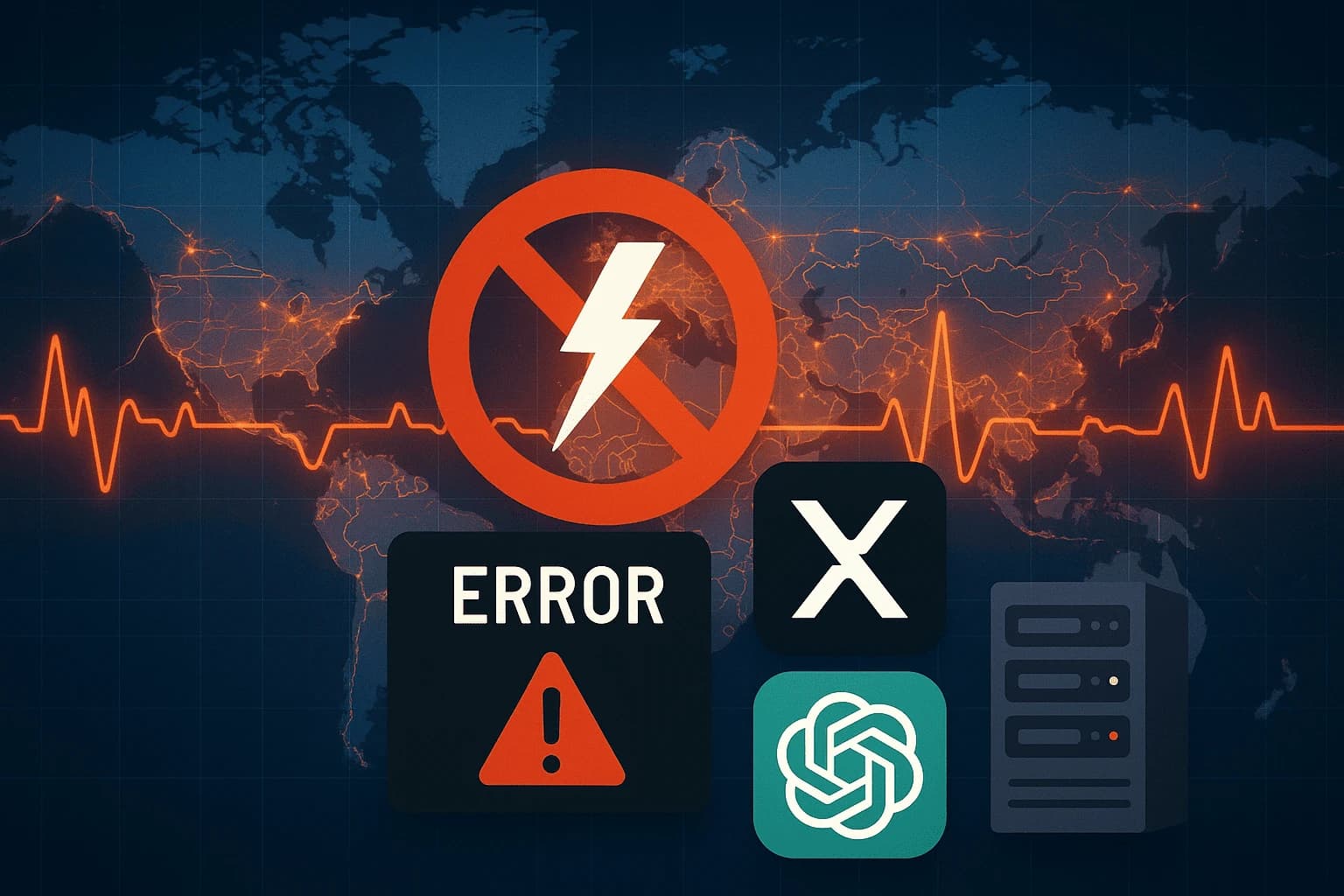Israel Attacks Gaza, Netanyahu Tells Civilians to Leave

* All product/brand names, logos, and trademarks are property of their respective owners.
In a dramatic escalation of the ongoing conflict, Israel launched a series of intensified air and ground assaults on Gaza City late Monday, with Prime Minister Benjamin Netanyahu issuing a stark warning to civilians in the northern Gaza Strip to evacuate immediately. The announcement comes amid mounting fears of a full-scale ground offensive, as Israeli Defense Forces (IDF) intensify their operations targeting what they describe as Hamas infrastructure. The renewed attacks have triggered widespread panic among civilians, with thousands attempting to flee toward the already overcrowded southern regions. Netanyahu's directive urges civilians to move to what Israel calls "safe zones," though humanitarian organizations warn that such areas remain perilously under-resourced and inaccessible to many. The situation on the ground remains volatile, with the United Nations expressing grave concern over the unfolding humanitarian crisis.
Details of the Attack
Israel launched a wave of airstrikes on Gaza City late Monday, intensifying its military campaign against Hamas amid escalating regional tensions. According to the Israeli Defense Forces (IDF), the strikes targeted alleged militant hideouts, weapons depots, and tunnel networks used by Hamas. Loud explosions were reported across northern Gaza, with plumes of smoke rising above densely populated neighborhoods.
Prime Minister Benjamin Netanyahu confirmed the attacks, stating that Israel is “entering a new phase” of its operation. “We are determined to eliminate the terrorist threat. This will be a long and difficult campaign, but we will not back down,” he said during a televised address.
Residents described the bombardment as some of the heaviest in recent weeks, with entire blocks reduced to rubble. Several areas reportedly lost power and internet connectivity, further isolating civilians from the outside world. Local sources reported casualties, but exact figures remain unverified due to ongoing chaos.
Civilian Evacuation Order
As the strikes intensified, Prime Minister Netanyahu urged civilians in northern Gaza to leave immediately, warning that anyone who remains “puts themselves at risk.” The Israeli military distributed leaflets, made phone calls, and used loudspeakers to deliver the message, directing civilians to move south to designated “humanitarian zones.”
However, the evacuation order has drawn heavy criticism from humanitarian groups, who argue that the so-called safe zones are already overcrowded and lack access to clean water, medical aid, and shelter. The United Nations Office for the Coordination of Humanitarian Affairs (OCHA) described the directive as “nearly impossible to comply with,” noting that many residents lack transport or safe passage.
Eyewitnesses reported families fleeing on foot, carrying children and the elderly under heavy bombardment. “We don’t know where to go. There is no safe place in Gaza,” said one displaced resident, speaking to local media.
Humanitarian Situation on the Ground
The humanitarian crisis in Gaza is rapidly worsening as thousands of displaced civilians seek refuge in overcrowded shelters with limited resources. Hospitals, already operating beyond capacity, are struggling to treat the wounded amid power outages and shortages of medical supplies. According to the Palestinian Red Crescent, several ambulances have been unable to reach affected areas due to ongoing airstrikes.
Access to food, clean water, and sanitation remains critical. The UN reports that nearly half of Gaza’s population is now displaced, with humanitarian corridors either blocked or under threat. Aid organizations have called for an immediate ceasefire to allow emergency relief to enter the region safely.
“The situation is catastrophic,” said a spokesperson for Médecins Sans Frontières (Doctors Without Borders). “People are sleeping in the streets, without food or clean water. This cannot continue.”
Regional & International Reactions
Pakistan condemned the strikes, calling for an immediate ceasefire and urging the global community to protect Palestinian civilians. The UN and Red Cross echoed similar concerns, warning of a deepening humanitarian disaster. As the conflict intensifies, hopes for diplomacy remain dim, with both sides showing no signs of de-escalation.
Related Posts

Indian Tejas Fighter Jet Crashes in Fiery Explosion at Dubai Air Show, Pilot Dead
22 November 2025

Cloudflare Outage Causes Global Internet Disruption — X, ChatGPT & Major Sites Down
18 November 2025
Comments (0)
No comments yet. Be the first to comment!

.webp&w=3840&q=75)